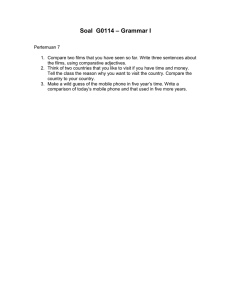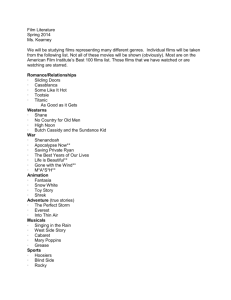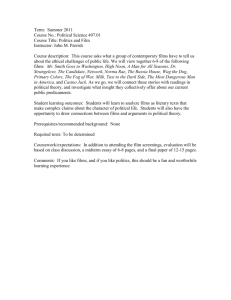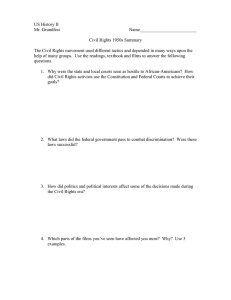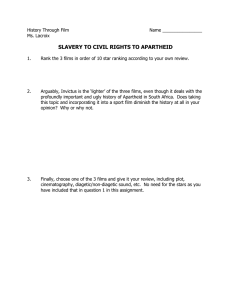Phone: Mrs. Eagan
advertisement
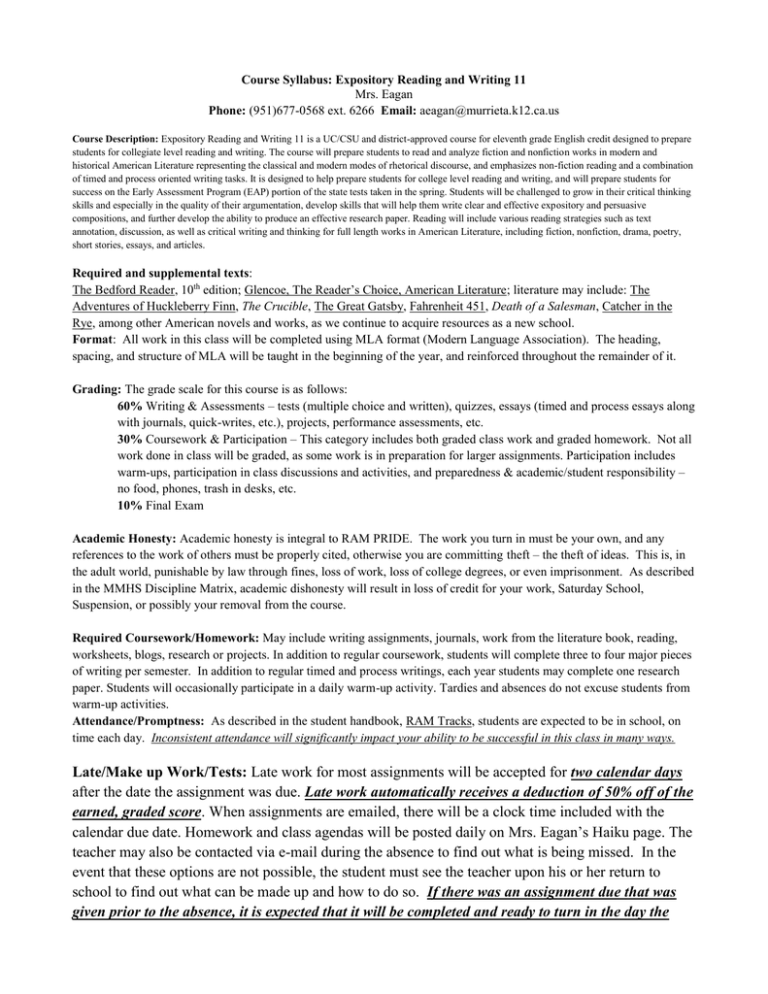
Course Syllabus: Expository Reading and Writing 11 Mrs. Eagan Phone: (951)677-0568 ext. 6266 Email: aeagan@murrieta.k12.ca.us Course Description: Expository Reading and Writing 11 is a UC/CSU and district-approved course for eleventh grade English credit designed to prepare students for collegiate level reading and writing. The course will prepare students to read and analyze fiction and nonfiction works in modern and historical American Literature representing the classical and modern modes of rhetorical discourse, and emphasizes non-fiction reading and a combination of timed and process oriented writing tasks. It is designed to help prepare students for college level reading and writing, and will prepare students for success on the Early Assessment Program (EAP) portion of the state tests taken in the spring. Students will be challenged to grow in their critical thinking skills and especially in the quality of their argumentation, develop skills that will help them write clear and effective expository and persuasive compositions, and further develop the ability to produce an effective research paper. Reading will include various reading strategies such as text annotation, discussion, as well as critical writing and thinking for full length works in American Literature, including fiction, nonfiction, drama, poetry, short stories, essays, and articles. Required and supplemental texts: The Bedford Reader, 10th edition; Glencoe, The Reader’s Choice, American Literature; literature may include: The Adventures of Huckleberry Finn, The Crucible, The Great Gatsby, Fahrenheit 451, Death of a Salesman, Catcher in the Rye, among other American novels and works, as we continue to acquire resources as a new school. Format: All work in this class will be completed using MLA format (Modern Language Association). The heading, spacing, and structure of MLA will be taught in the beginning of the year, and reinforced throughout the remainder of it. Grading: The grade scale for this course is as follows: 60% Writing & Assessments – tests (multiple choice and written), quizzes, essays (timed and process essays along with journals, quick-writes, etc.), projects, performance assessments, etc. 30% Coursework & Participation – This category includes both graded class work and graded homework. Not all work done in class will be graded, as some work is in preparation for larger assignments. Participation includes warm-ups, participation in class discussions and activities, and preparedness & academic/student responsibility – no food, phones, trash in desks, etc. 10% Final Exam Academic Honesty: Academic honesty is integral to RAM PRIDE. The work you turn in must be your own, and any references to the work of others must be properly cited, otherwise you are committing theft – the theft of ideas. This is, in the adult world, punishable by law through fines, loss of work, loss of college degrees, or even imprisonment. As described in the MMHS Discipline Matrix, academic dishonesty will result in loss of credit for your work, Saturday School, Suspension, or possibly your removal from the course. Required Coursework/Homework: May include writing assignments, journals, work from the literature book, reading, worksheets, blogs, research or projects. In addition to regular coursework, students will complete three to four major pieces of writing per semester. In addition to regular timed and process writings, each year students may complete one research paper. Students will occasionally participate in a daily warm-up activity. Tardies and absences do not excuse students from warm-up activities. Attendance/Promptness: As described in the student handbook, RAM Tracks, students are expected to be in school, on time each day. Inconsistent attendance will significantly impact your ability to be successful in this class in many ways. Late/Make up Work/Tests: Late work for most assignments will be accepted for two calendar days after the date the assignment was due. Late work automatically receives a deduction of 50% off of the earned, graded score. When assignments are emailed, there will be a clock time included with the calendar due date. Homework and class agendas will be posted daily on Mrs. Eagan’s Haiku page. The teacher may also be contacted via e-mail during the absence to find out what is being missed. In the event that these options are not possible, the student must see the teacher upon his or her return to school to find out what can be made up and how to do so. If there was an assignment due that was given prior to the absence, it is expected that it will be completed and ready to turn in the day the student returns to school. Absences that occur during a period of time between an assigned date and a due date will NOT allow the student an extended due date. (Example: during a two week assignment, a student is absent once; one extra day will not be given.) Students will have one calendar week from the day of an EXCUSED absence to turn in missed work. Several large writing assignments will be due regardless if the student is present or not. If not present at school on the due date for such an assignment, the writing assignment will be required via email with a time deadline. Tests and in class writing assessments must be made up promptly by appointment with the teacher. An alternative assessment may be given in some instances where test security is an issue, or when it is not possible to duplicate the exact test that was given in class. PRIDE is the best way to make up such assignments. Citizenship: standard school wide (RAM PRIDE – Purpose, Responsibility, Integrity, Duty, Excellence) Students are expected at all times to meet the standards and expectations as explained on pages 9 and 10 of RAM Tracks. General Expectations and Rules with Consequences: All students are expected to adhere to the MMHS Behavioral Matrix in the student handbook – RAM Tracks. All school and district rules will be upheld in this class at all times. This means specifically that there will be no food or drinks in class, other that water, no gum, no hats worn in class, no electronic devices visible or audible in class, no harassment of any sort, no writing in the textbooks, no plagiarism, no breaking of dress code, no profanity or lewd language, and that all students will constantly demonstrate respect for each other, the teacher, and the school. Infractions of school rules and/or disrespect to others in the class will result in the following consequences: Verbal warning Meeting with teacher during student’s free time for conference, written plan/apology, other remedy… Parent contact Administrative referral The above is a general order of school-wide consequences. Specific consequences may be skipped based on the severity of the behavior or its effect on others. Other behavioral management practices may be employed as need at the teacher’s discretion. The following is a list of films that accompany 11 th grade Expo units, novels, articles, and/or concepts. Some of them are shown in their entirety while others are used for certain clips or scenes. The purpose of showing these films is always for emphasizing current curriculum (to enhance or emphasize specific purposes, points or themes, to deepen the students’ understanding of a specific piece of literature, etc.) and often have response work; they are not shown simply to show a movie. Although these are the films used in 11th grade Expo in the past, new ones may be chosen based on changing curriculum or new “discoveries.” With this in mind, please choose one option below to state your preference regarding your child’s viewing of these and any other possible additional films in class. Please note that the list below contains films that have potential to be shown in their entirety. (The decision to show clips or entire films will be made close to the time they will be used based on lesson plans and time.) Clips of films may legally be shown in class without a permission slip, so clips of films not listed may be shown in the future without notice. Permission must be granted to view films in their entirety above a G rating. More info regarding each film can be found on my Haiku page. Please be assured that there is no penalty for not viewing a film, as alternate assignments related to the topic will be given out to those not viewing the film. ______ I give my child permission to view all of the listed films in their entirety AND any curriculum related film with a rating of PG 13 or below that may be added to the list at a later date. ______ I give my child permission to view all of the listed films in their entirety, but I would like to be notified of any future films added to the list. ______ I do not give my child permission to view the following films: _______________________________________________ ________________________________________________________________________________________________________ Fed Up (Food Industry Documentary) (PG) Death of a Salesman (PG) Food Inc (Food Industry Documentary) (PG) Pleasantville (PG-13) King Corn (Food Industry Documentary) (PG) Rebel Without a Cause (PG-13) Hitch (PG-13) Remember the Titans (PG) Please sign to: 1) state you have read the course syllabus, 2) are aware of Mrs. Eagan’s contact information, and 3) for verification of your film permission option above. Please return to Mrs. Eagan. Printed student name: __________________________________________________________________ Student Signature: _____________________________________________________ Date: __________ Parent/Guardian Signature: ______________________________________________ Date: __________
